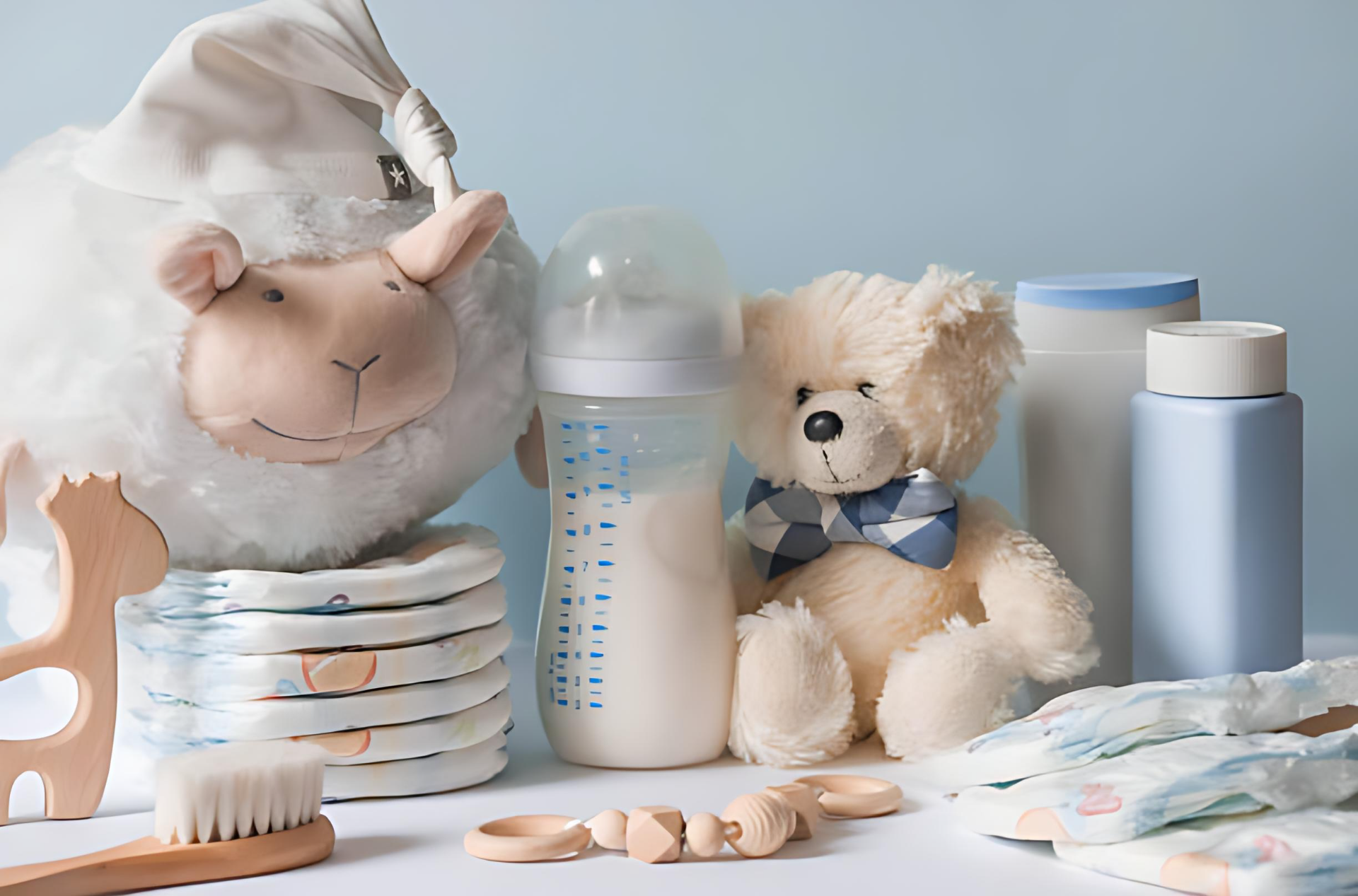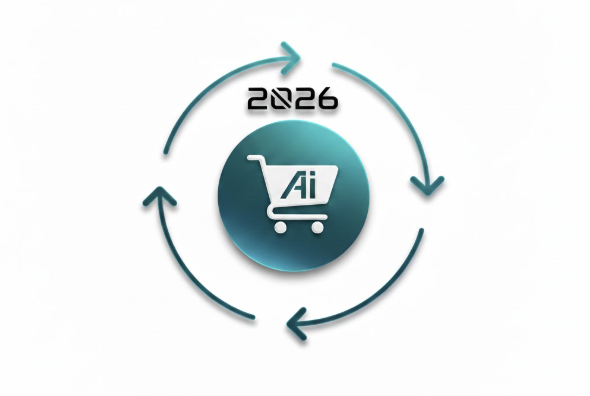AI Brand-Safety Checklist for Baby-Products Ecommerce

Key Takeaways
- Trust is everything in baby products ecommerce—one wrong AI recommendation can damage hard-earned customer confidence
- Age-appropriate guardrails are essential to prevent dangerous product suggestions and maintain safety standards
- Tone consistency across all AI interactions helps preserve your brand voice and parental trust
- Real-time accuracy in product information and inventory prevents frustrating customer experiences
- Sensitive handling of parenting concerns requires AI trained on your brand values and safety guidelines
- Crisis preparedness with pre-configured AI responses protects both customers and brand reputation during recalls or safety issues
When it comes to baby products, trust isn't just important—it's everything. Parents research extensively, read every review, and scrutinize every detail before making a purchase. One misplaced product recommendation or off-brand AI response can instantly erode the confidence you've worked so hard to build.
That's why brand safety becomes even more critical in the baby products space. Your AI needs to understand not just your products, but the delicate balance of being helpful without being overwhelming, informative without being alarmist, and trustworthy without being robotic. According to the Consumer Product Safety Commission, thousands of baby product recalls occur annually, making accurate AI recommendations crucial for both safety and brand protection.
Here's your essential checklist to ensure your AI interactions protect and enhance your brand's reputation with the parents who trust you most. Learn more about AI for baby and maternity ecommerce and its unique challenges.
1. Age-Appropriate Product Recommendations Only
Your AI should never suggest a 12-month toy to parents shopping for a newborn, or recommend honey-based products for infants under one year. Build guardrails that ensure every product recommendation aligns with developmental stages and safety guidelines. AI that understands your brand means AI that understands your customers' specific needs at every stage of their parenting journey.
2. Safety-First Language That Doesn't Alarm
Train your AI to communicate safety information clearly without creating unnecessary anxiety. Instead of saying "This product prevents SIDS," use language like "This product supports safe sleep practices." Your AI should be informative and reassuring, not fear-inducing. Built-in guardrails keep your brand's voice supportive and trustworthy.
3. No Stock-Status Surprises
Nothing frustrates new parents more than falling in love with a product only to discover it's out of stock at checkout. Your AI should have real-time inventory awareness and never surface unavailable items in search results or recommendations. Trustworthy AI interactions are rooted in accurate, up-to-the-minute data. Research shows that 70.19% of consumers abandon their cart when they encounter problems during checkout, making real-time inventory crucial for conversions.
4. Tone-Consistent Responses Across All Touchpoints
Whether a parent is asking about bottle sterilizers at 3 AM or browsing strollers during naptime, your AI's voice should remain consistently warm, knowledgeable, and supportive. No robotic responses or jarring tone shifts that make parents question if they're talking to a real brand representative. AI that never goes off-brand maintains the trust you've built.
5. Accurate Product Information with Zero Hallucinations
Your AI must never invent product features, safety certifications, or specifications. When parents ask if a car seat is FAA-approved for travel, your AI needs to know the exact answer from your product database—not guess. No surprises, no hallucinations, no compromises when it comes to product accuracy.
6. Sensitive Handling of Parenting Concerns
Train your AI to recognize when parents express worries about development, feeding, or sleep and respond with empathy while staying within your brand's expertise. Your AI shouldn't attempt to provide medical advice but should know how to acknowledge concerns and guide parents to appropriate resources or products. The American Academy of Pediatrics provides excellent guidelines for child safety that can inform your AI's response parameters.
7. Bundle Recommendations That Actually Make Sense
Your AI should understand which products work together and which don't. Never recommend a bottle warmer and a bottle sterilizer that aren't compatible, or suggest adding a sound machine to a cart that already contains three different sleep aids. Smart bundling builds trust and increases order value. Discover how AI improves cross-selling and upselling in ecommerce.
8. Brand Voice That Matches Your Values
If your brand emphasizes natural ingredients, your AI shouldn't sound overly clinical. If you're known for being budget-friendly, don't let your AI sound luxury-focused. Every response should feel authentically like your brand, reinforcing the values that drew customers to you in the first place.
9. Search Results That Prioritize Intent Over Keywords
When a parent searches "baby won't sleep," your AI should understand they're not necessarily shopping for sleep products—they might need gentle guidance toward your sleep resources or age-appropriate comfort items. Context-aware search prevents irrelevant results that feel tone-deaf to parenting struggles. Learn more about how AI improves product search for better customer experiences.
10. Proactive Disclosure of Important Details
Your AI should automatically surface crucial information like age recommendations, choking hazards, or assembly requirements before parents have to dig for it. Transparency builds trust, and trust drives conversions. Parents appreciate brands that anticipate their safety questions.
11. Respectful Handling of Different Parenting Philosophies
Whether customers practice attachment parenting, follow strict schedules, or fall somewhere in between, your AI should never judge or favor one approach over another. Train your AI to be inclusive and supportive of different parenting styles while staying true to your brand's positioning.
12. Crisis-Ready Response Protocols
If a product recall happens or safety concern arises, your AI needs pre-configured responses that direct customers to official information without creating panic. Having guardrails in place for sensitive situations protects both your customers and your brand reputation. Stay updated with CPSC recalls to ensure your AI's crisis protocols remain current.
Why Envive Is Built for Brands That Prioritize Brand Safety
When you're selling products that parents trust with their babies' wellbeing, you can't afford AI that goes off-script. Envive's approach to brand safety isn't an afterthought—it's built into every interaction from day one.
Unlike other AI systems that can hallucinate product features or recommend inappropriate items, Envive's agents are trained exclusively on your actual product data and configured with your brand-specific safety guidelines. This means:
• No rogue results that suggest unsafe product combinations or age-inappropriate items
• Zero hallucinations about product certifications, ingredients, or safety features that don't exist
• Built-in guardrails that keep every recommendation aligned with your brand voice and values
• Real-time inventory awareness so parents never fall in love with unavailable products
The difference is in our foundation. While other AI platforms rely on general training that can lead to generic or off-brand responses, Envive creates AI that understands your brand and never goes off-brand. Every search result, product recommendation, and customer interaction is rooted in your voice and data.
For baby product brands, this translates to trustworthy AI interactions that feel authentically helpful rather than robotic or risky. When a sleep-deprived parent asks your AI about sleep solutions at 2 AM, they get responses that sound like your brand—not a generic chatbot that might recommend products outside your safety standards.
The result? No surprises, no hallucinations, no compromises. Just AI that protects the trust you've worked so hard to build with the parents who depend on you. Explore our case studies to see how brands maintain safety while driving growth.
The Bottom Line
In the baby products industry, brand safety isn't just about avoiding embarrassing AI mistakes—it's about preserving the sacred trust between your brand and the parents who rely on you during their most vulnerable moments.
When your AI is trained on your actual product data and configured with brand-specific guidelines, you create more than just accurate responses. You create experiences that feel genuinely helpful, authentically caring, and completely trustworthy.
Because when parents trust your AI, they trust your brand. And when they trust your brand, they become customers for life—not just for this baby, but for every milestone that follows.
Frequently Asked Questions
Q: How do I ensure my AI doesn't recommend age-inappropriate products?
A: Configure your AI with strict age-based guardrails that cross-reference every product recommendation with developmental safety guidelines. Your AI should be trained on your product database with clear age restrictions and never suggest items outside safe age ranges. For example, it should never recommend small parts toys for infants or honey-based products for babies under 12 months. Reference the FDA's guidelines on infant feeding for additional safety parameters.
Q: What happens if my AI gives incorrect safety information to a customer?
A: This is why brand safety protocols are essential. Train your AI to only reference verified product specifications from your database and established safety guidelines. When in doubt, your AI should direct customers to consult healthcare professionals rather than provide medical advice. Having pre-configured responses for safety-related questions helps prevent misinformation. Learn more about how AI improves product recommendations to ensure accuracy.
Q: How can I maintain my brand voice while ensuring AI responses are helpful during parenting crises?
A: Develop response templates that blend empathy with your brand's tone while staying within appropriate boundaries. Train your AI to acknowledge parental concerns without providing medical advice, and guide customers toward appropriate resources or gentle product suggestions. The key is being supportive without overstepping your expertise.
Q: Should my AI mention competitors when parents ask about product comparisons?
A: Focus your AI on highlighting your products' unique benefits rather than directly comparing to competitors. Train it to understand your product ecosystem well enough to suggest the best options from your catalog based on customer needs. This approach builds trust while keeping conversations focused on how your brand serves their needs.
Q: How do I handle seasonal appropriateness in product recommendations?
A: Configure your AI with seasonal awareness and geographic considerations. It shouldn't recommend heavy winter gear in summer or swimwear in December (unless specifically requested). This extends to developmental appropriateness—suggesting outdoor toys when babies are ready for them, not before they can safely use them.
Q: What should my AI do when parents ask about recalled products?
A: Have crisis-ready protocols with pre-written responses that immediately direct customers to official recall information and your customer service team. Your AI should never downplay safety concerns and should be programmed to escalate serious safety questions to human representatives who can provide detailed guidance. Stay current with FDA recall databases and CPSC alerts.
Q: How often should I update my AI's brand safety guidelines?
A: Review and update guidelines quarterly, or immediately when new products launch, safety standards change, or recall situations arise. Your AI's knowledge should stay current with your inventory, seasonal considerations, and evolving safety recommendations. Regular testing with common customer scenarios helps identify gaps before they impact real interactions. Consider reading our insights for ongoing AI optimization best practices.

Other Insights

Insights with Ajinkya (Jinx) Joglekar

The Financial Inevitability of Custom AI Models

The Ecommerce Reset: What Matters Going Into 2026
See Envive
in action
Let’s unlock its full potential — together.






